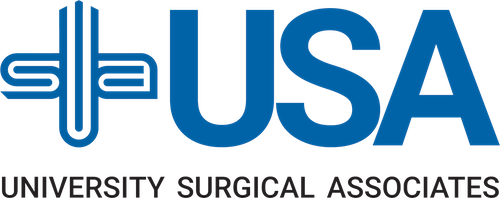Ventral Hernia Post-Op Instructions
The ventral hernia repair that your child had may cause some discomfort for a few days. If the operative site has a dressing, it should be kept clean and dry. It is not to be removed unless indicated by your surgeon. You should observe and supervise your child’s activity for the remainder of the day. Sleepiness or dizziness for a few hours after surgery may be expected.
Discomfort: If your child is irritable or uncomfortable, you may give Tylenol or Tempra Drops according to the manufacturer’s recommendations for your child’s age, which are printed on the bottle. Your child may experience a temperature elevation the day of surgery and into the evening hours. If the temperature is less than 102 F give Tylenol; if the temperature rises above 102 F, call the answering service for further instructions. An elevated temperature often means the child needs more fluids.
Diet: Give your child clear liquids (water, carbonated drinks, Gatorade) as tolerated for the first four to six hours after surgery. If these are tolerated well, you may then give your child the food he/she normally eats. If nausea or vomiting should occur, stop all food and liquids for a couple of hours then start over with liquids and gradually build up to regular foods.
Activity: Your child’s play and other activities should be limited for the first two days following surgery; normal activity can then be resumed. Strenuous activity, such as bicycle riding and gym climbing, should be delayed until specific permission to do so is obtained from your surgeon. Your child may return to school three days after surgery; however, he/she may not participate in physical education classes until permission to do so is given by your surgeon.
Bathing: Your child may have a sponge bath 24 hours after surgery. If there is a bandage, do not get it wet or immerse the child in water. You may give your child a complete bath or shower 48-72 hours after surgery, but do not have him or her sit and soak in the tub for ten days.
On rare occasions, complications may develop following an operative procedure. For this type of surgery, it is important that you report the following:
Excessive odor or drainage indicating infection
Fresh bleeding (not old, crusty blood)
Excessive swelling and blueness at the operative site
Postoperative Check: Your surgeon will want to see your child following surgery. If you have not already arranged a follow-up appointment, please call our office to do so, the afternoon after surgery or the following morning. If you have any questions or concerns, do not hesitate to call our main office number at (423) 267-0466.
Ventral Hernia
Post-Op Instructions
The ventral hernia repair that your child had may cause some discomfort for a few days. If the operative site has a dressing, it should be kept clean and dry. It is not to be removed unless indicated by your surgeon. You should observe and supervise your child’s activity for the remainder of the day. Sleepiness or dizziness for a few hours after surgery may be expected.
Discomfort: If your child is irritable or uncomfortable, you may give Tylenol or Tempra Drops according to the manufacturer’s recommendations for your child’s age, which are printed on the bottle. Your child may experience a temperature elevation the day of surgery and into the evening hours. If the temperature is less than 102 F give Tylenol; if the temperature rises above 102 F, call the answering service for further instructions. An elevated temperature often means the child needs more fluids.
Diet: Give your child clear liquids (water, carbonated drinks, Gatorade) as tolerated for the first four to six hours after surgery. If these are tolerated well, you may then give your child the food he/she normally eats. If nausea or vomiting should occur, stop all food and liquids for a couple of hours then start over with liquids and gradually build up to regular foods.
Activity: Your child’s play and other activities should be limited for the first two days following surgery; normal activity can then be resumed. Strenuous activity, such as bicycle riding and gym climbing, should be delayed until specific permission to do so is obtained from your surgeon. Your child may return to school three days after surgery; however, he/she may not participate in physical education classes until permission to do so is given by your surgeon.
Bathing: Your child may have a sponge bath 24 hours after surgery. If there is a bandage, do not get it wet or immerse the child in water. You may give your child a complete bath or shower 48-72 hours after surgery, but do not have him or her sit and soak in the tub for ten days.
On rare occasions, complications may develop following an operative procedure. For this type of surgery, it is important that you report the following:
Excessive odor or drainage indicating infection
Fresh bleeding (not old, crusty blood)
Excessive swelling and blueness at the operative site
Postoperative Check: Your surgeon will want to see your child following surgery. If you have not already arranged a follow-up appointment, please call our office to do so, the afternoon after surgery or the following morning. If you have any questions or concerns, do not hesitate to call our main office number at (423) 267-0466.

